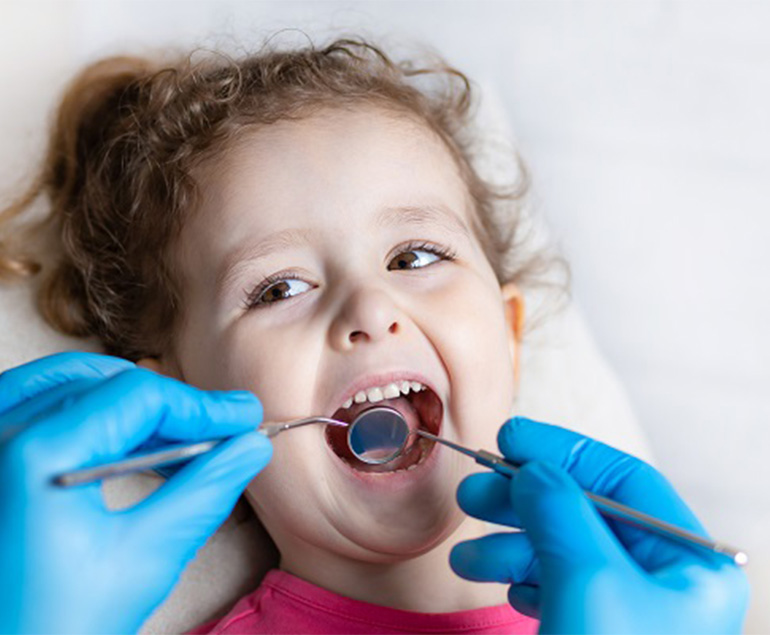
Child Dentistry
Children and newborns can experience problems with their oral health.
Children's teeth are impacted by what they eat. Sugars, which are present in foods like cake, cookies, candy, milk, and juice, as well as starches, which are present in foods like pretzels and potato chips, can cause tooth decay. As a result of food debris from these foods remaining in children's teeth, bacteria can grow and eventually cause tooth decay, making it harder to clean babies' and children's teeth.
Healthy baby teeth are essential to a child's overall health and development, even if baby teeth (also known as deciduous or primary teeth) are eventually replaced by permanent teeth.
Check List for Child
Neonatal teeth (teeth that form in the first month) are sometimes present from birth and must be removed by good oral hygiene or a trip to the dentist. At least one baby tooth will have emerged by the age of six months. And cleaning is really necessary.
Between the ages of six and 24 months, children start to experience teething in earnest, as shown by irritability, object-biting, drooling, and ear pulling. You can help your child's teething process as a parent by massaging their gums, giving them a frozen teething ring or cool, wet washcloth, and asking your dentist for a recommendation on a teething ointment.
By the age of three, most baby teeth, if not all, have come in. After four years, spaces for permanent teeth start to form as the jaw, supporting bone structure, and facial bones start to grow.
Between the ages of six and twelve, it is common for your child to have both baby teeth and permanent teeth in their mouth.
For more details, call : +91 9159016233 or visit: click here.
